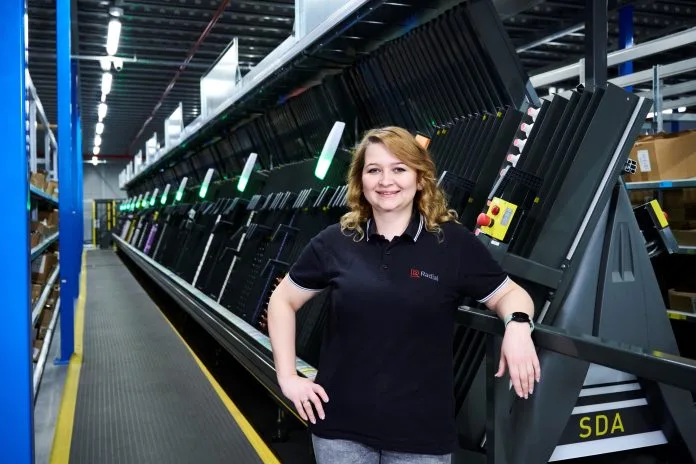Direct Selling and E-commerce
The convergence of direct selling and e-commerce has revolutionized the industry, particularly in the health and beauty sector. As traditional person-to-person sales methods blend with digital capabilities, direct selling companies are adapting their strategies to meet the demands of an increasingly online marketplace.
E-commerce impact on direct selling
How digital is reshaping the industry
The convergence of direct selling and e-commerce has revolutionized the industry, particularly in the health and beauty sector. As traditional person-to-person sales methods blend with digital capabilities, direct selling companies are adapting their strategies to meet the demands of an increasingly online marketplace.
Direct Selling, Multilevel Marketing, and Pyramid Schemes: Understanding the Distinctions
While often confused or lumped together, Direct Selling, Multilevel Marketing (MLM), and pyramid schemes are distinct business models with important differences.
Direct Selling
Direct Selling: Direct selling is a legitimate business model where products or services are sold directly to consumers outside fixed retail locations. Key characteristics include:
- Person-to-person sales
- Often conducted in homes or workplaces
- Salespeople earn commissions on their sales
- Focuses primarily on product sales to end consumers
Multilevel Marketing (MLM)
Multilevel Marketing (MLM): MLM is a subset of direct selling that includes an additional element:
- Distributors can recruit other distributors
- Earnings come from both personal sales and a percentage of sales from recruited downline members
- Multiple levels of distributors can exist
- Legal when the primary focus remains on selling products to customers
Pyramid schemes
Pyramid schemes are fraudulent investment operations:
- Promise high returns with little or no risk
- Pay earlier investors with funds from later investors
- No actual product or service is sold
- Ultimately collapse when new investments can’t cover payouts
- Illegal and often results in significant financial losses for participants
Key differences
- Legitimacy: Direct selling and MLM can be legitimate business models, while Pyramid and Ponzi schemes are almost always illegal.
- Product focus: Direct selling and MLM involve actual product sales, whereas Pyramid and Ponzi schemes do not.
- Source of income: In direct selling, income comes solely from sales. MLM includes both sales and recruitment.
- Sustainability: Direct selling and MLM can be sustainable long-term, while Pyramid and Ponzi schemes inevitably collapse.
Direct Selling business model
According to the Direct Selling Association, “Direct Selling is a retail channel used by top global brands and smaller, entrepreneurial companies to market products and services to consumers. Companies market all types of goods and services, including jewelry, cookware, nutritionals, cosmetics, housewares, energy and insurance, and more”.
Main product areas in direct selling:
- Beauty and Personal Care: This is one of the largest segments, including cosmetics, skincare, and fragrances.
- Wellness and Health: Nutritional supplements, weight management products, and fitness accessories.
- Home Goods and Decor: Kitchenware, home decor items, and cleaning products.
- Fashion and Accessories: Clothing, jewelry, and accessories.
- Food and Beverages: Specialty foods, wine, and gourmet products.
- Technology and Electronics: Smart home devices, personal gadgets.
- Educational Products: Books, educational toys, and learning materials.
- Financial Services: Insurance and investment products.

Direct selling: the trust business
Direct selling relies heavily on trust. Fulfilling orders for direct selling customers differs from fulfilling orders for retail, requiring careful management of various needs and changing sales cycles. Joakim Garint, Sales Director at Radial Europe, shares insights into working with direct selling companies.
Intersection with Multilevel Marketing:
Direct selling often intersects with multilevel marketing when companies adopt a hierarchical distributor structure. This typically occurs when:
- Distributors are encouraged to recruit new sellers.
- Compensation plans include commissions on downline sales.
- Multiple levels of distributors exist within the organization.
- Training and mentorship programs focus on both sales and recruitment.
Many large direct-selling companies use MLM structures, leading to confusion between the two concepts.
Biggest and most respected brands:
- Amway: One of the oldest and largest, known for home and personal care products.
- Avon: A global beauty company with a long history in direct selling.
- Tupperware: Famous for its food storage containers and kitchen products.
- Mary Kay: A prominent cosmetics and skincare company.
- Herbalife Nutrition: Focuses on nutritional supplements and weight management.
- Nu Skin: Offers personal care products and dietary supplements.
- Pampered Chef: Known for kitchen tools and cookware.
- Oriflame: A Swedish company specializing in beauty products.
- Natura &Co: A Brazilian company that now owns Avon, The Body Shop, and Aesop.
- doTERRA: Best known for essential oils and wellness products.
Industry’s development
The direct selling industry continues to evolve, with many companies now incorporating e-commerce and social media strategies alongside traditional person-to-person sales methods.
Direct Selling and e-commerce
E-commerce is fundamentally transforming the landscape of direct selling, blending traditional person-to-person sales with digital capabilities. This shift is reshaping the industry in several key ways.
First, it’s expanding the reach of direct sellers beyond their immediate social circles, allowing them to connect with customers across geographical boundaries. Digital platforms and social media are becoming integral tools, enabling sellers to showcase products, share testimonials, and engage with prospects in real time.
Streamlining purchasing
Additionally, e-commerce is streamlining the purchasing process, with many companies now offering personalized online stores for their distributors. This digital integration is also enhancing customer service through chatbots, virtual consultations, and automated reordering systems.
Furthermore, data analytics derived from e-commerce activities are providing valuable insights into consumer behavior, helping companies and individual sellers tailor their strategies more effectively.
As a result, the line between traditional direct selling and e-commerce is increasingly blurring, creating a hybrid model that combines the personal touch of direct sales with the convenience and scalability of online retail.

Implementing automation for a direct-selling company
In this interview with Magdalena Najmanowicz, Head of Onboarding & Projects at Radial, we delve into the successful implementation of the KNAPP automated solution. Radial, a leading provider of logistics services, has partnered with doTERRA, a fast-growing direct-selling company, to optimize their fulfillment processes. Join us as we explore the key insights and achievements of this transformative project.
E-commerce for direct selling in Health & Beauty and Personal Care
Among the many product areas that direct-selling brands are active with, the largest segments are Health & Beauty, Personal Care, and Wellness. Here are some insights on e-commerce statistics for direct selling in these areas:
- Market size: The global direct-selling market for health and beauty products was valued at approximately $125 billion in 2021, with projections to reach $200 billion by 2028.
- E-commerce growth: E-commerce sales in direct selling for health and beauty products have been growing at an annual rate of 15-20% since 2020.
- Mobile sales: Mobile devices account for over 60% of e-commerce transactions in direct selling for health and beauty products.
- Social media influence: About 70% of direct sellers in the health and beauty sector use social media platforms for product promotion and customer engagement.
- Digital tools: Approximately 80% of direct selling companies in the health and beauty sector have invested in digital tools and platforms to support their distributors’ e-commerce efforts.
- Customer preferences: Around 65% of customers prefer to research health and beauty products online before making a purchase, even if they ultimately buy from a direct seller.
- Personalization: Direct selling companies using AI-driven personalization in their e-commerce platforms have seen a 30% increase in average order value.
- Global reach: E-commerce has enabled direct selling companies in the health and beauty sector to expand their reach, with some reporting up to 40% of their sales coming from international markets.
Fulfillment for direct selling
Fulfillment for direct selling brands active in e-commerce within the European market is a crucial aspect of their operations. Here’s an overview of key points:
Centralized vs. Decentralized Fulfillment:
- Many direct-selling brands opt for centralized warehousing and fulfillment centers to serve multiple European countries.
- Some use a hub-and-spoke model with main distribution centers in strategic locations like Germany or the Netherlands, supplemented by smaller local warehouses.
Third-Party Logistics (3PL) Providers
- Many brands partner with 3PL providers specializing in e-commerce fulfillment across Europe.
- These providers offer expertise in cross-border shipping, customs regulations, and local delivery networks.
Cross-Border Considerations:
- Despite the EU’s single market, there are still complexities in cross-border e-commerce fulfillment due to varying VAT rates and consumer protection laws.
- Brexit has added additional complications for fulfillment between the UK and EU countries.
Automation and Technology:
- Advanced warehouse management systems (WMS) are increasingly used to optimize picking, packing, and shipping processes.
- Some brands are investing in automated sorting systems and robotics to increase efficiency.
Last mile delivery
- Many brands offer multiple delivery options, including home delivery, click-and-collect, and delivery to parcel lockers.
- So partnerships with local courier services and postal networks are crucial for efficient last-mile delivery.
Sustainability concerns
- There’s a growing focus on sustainable packaging and shipping practices to meet consumer and regulatory demands.
- Some brands are exploring local micro-fulfillment centers to reduce transportation distances.
Inventory management
- Real-time inventory tracking across multiple warehouses is crucial for efficient order fulfillment.
- Some brands use predictive analytics to optimize stock levels and placement.
Multichannel
- Many direct-selling brands are adopting an omnichannel approach, requiring fulfillment solutions that can handle orders from various sales channels.
Radial Europe for Direct Selling brands
Direct-selling brands adapt e-commerce fulfillment strategies. They aim to meet consumer expectations: fast, reliable, flexible delivery options. Cost management remains crucial. Compliance issues require attention.
Radial Europe provides fulfillment and other e-commerce services for several direct selling brands operating in Europe. Here’s an overview of how Radial supports these companies:
- Fulfillment Services: Radial operates multiple fulfillment centers across Europe, strategically located to serve various markets efficiently. They handle warehousing, inventory management, order processing, and shipping for direct selling brands.
- Technology Integration: Radial’s technology platform integrates with direct selling companies’ e-commerce systems, enabling seamless order processing and real-time inventory visibility.
- Cross-Border Expertise: With experience in European cross-border e-commerce, Radial helps direct selling brands navigate the complexities of international shipping, customs regulations, and VAT compliance.
- Omnichannel Support: Radial’s services support omnichannel strategies, allowing direct selling brands to fulfill orders from various sales channels, including online stores, mobile apps, and social media platforms.
- Returns Management: They offer comprehensive returns processing services, which is crucial for direct selling brands in the EU’s consumer-friendly market.
- Customer Care: Radial provides customer service support in multiple languages, helping direct selling brands maintain strong customer relationships across different European markets.
- So Fraud detection and prevention services help protect direct selling brands from e-commerce frauds, which can be particularly important in cross-border transactions.
- Analytics and Reporting: Radial offers data analytics services, providing direct selling brands with insights into their e-commerce performance and customer behavior.
- Scalability: Their services are designed to scale with the growth of direct selling brands, accommodating seasonal peaks and long-term expansion.
- Customized Solutions: Radial works with each direct selling brand to create tailored fulfillment solutions that meet their specific needs and align with their business models.

Today the name of the game is “choice”
Tomasz Muras, an expert and passionate advocate of direct selling and the Executive Director of the Polish Direct Selling Association, shares his perspectives on the industry, the critical role of logistics, and future opportunities within the direct selling space.
Stay in touch for more information and in-depth details about Radial Europe’ services for the direct-selling industry.
Subscribe

A view of the operations in Radial’s fulfillment center in Warsaw, Poland.
